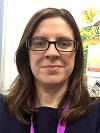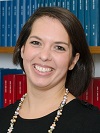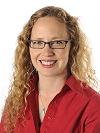News
RSB celebrates International Day of Women and Girls in Science
- Details
- 10 February 2017
The Royal Society of Biology’s vision is of a world that understands the true value of biology and how it can contribute to improving life for all. As 11th February is the International Day of Women and Girls in Science, we would like to highlight the work of three of our members and Fellows, selected from a very large pool of highly-talented and skilled bioscientists.
We think it is important to provide school children with excellent role models, and through this highlight the possible choices and options open as they learn more about biology.

Dr Michelle Keown MRSB “I am a senior lecturer in the Faculty of Biology, Medicine and Health at The University of Manchester. My role is to educate, guide, support and inspire my students who are ultimately the future of scientific research. Women have a vital part to play in this future by increasing the diversity of new ideas and breakthroughs that are needed and can be made in scientific research. We need to enthuse young girls with our knowledge and experiences, encouraging them and giving them the confidence to rise to the challenge of a STEM career.”
 Rachel Lambert-Forsyth CBiol FRSB, director of membership and professional affairs, Royal Society of Biology, “When I was at school I thought that biologists only worked in the lab or field or followed a medical career, neither of which appealed to me, working in the charity sector I use my scientific training on a daily basis to problem solve and critique new ideas, and working at the professional body for biologists I am directly supporting biologists across a range of sectors to enable them to answer the big questions facing humanity.
Rachel Lambert-Forsyth CBiol FRSB, director of membership and professional affairs, Royal Society of Biology, “When I was at school I thought that biologists only worked in the lab or field or followed a medical career, neither of which appealed to me, working in the charity sector I use my scientific training on a daily basis to problem solve and critique new ideas, and working at the professional body for biologists I am directly supporting biologists across a range of sectors to enable them to answer the big questions facing humanity.
"It’s the best of both worlds really! As a young woman I had people around me who told me ‘you can be whatever you want to be, as long as you work hard’ and so I love that my work at the RSB encourages the next generation of female leaders in the biosciences to achieve and be the very best they can be through our education and public engagement work.”

Dr Lisa Wallace MRSB “I am an associate professor and programme director for the applied medical sciences BSc at Swansea University Medical School. I am also the vice president for Academic Development for the British Pharmacological Society.
"I came to science fairly late in my education. Before University, I had a hard time picturing myself as a scientist because I thought in terms of stereotypes.
"When I finally actually met some scientists, I saw that they don’t have a common ‘type,’ just a love of science. I also lacked intellectual confidence; I didn’t think I was smart enough to be successful. An early mentor helped me realise that I was more clever than I thought; science is about asking questions rather than always knowing the answer. “

